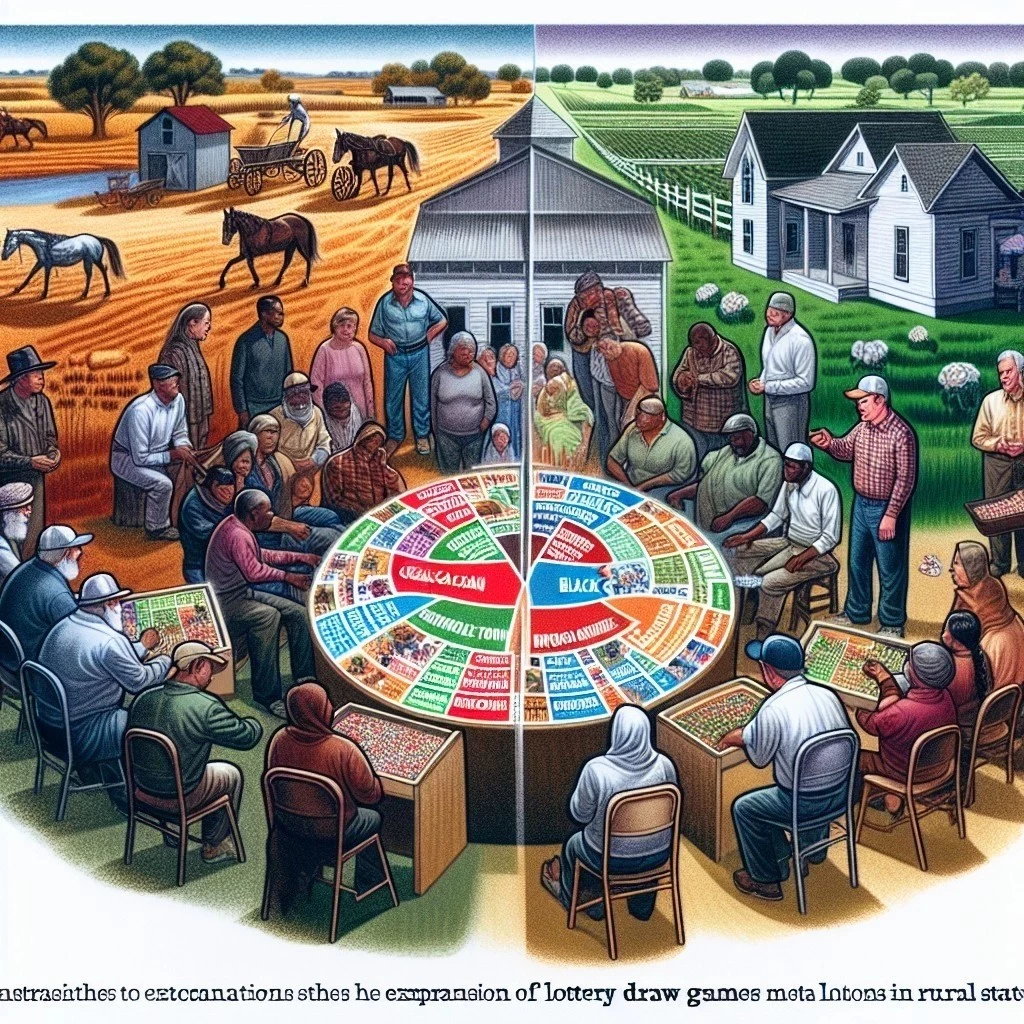Discover how lottery retailers are driving economic growth and lobbying for expanded draw games in rural states. Explore their vital role in state revenue.
The Expansion of Lottery Draw Games in Rural States: Opportunities and Challenges
Wellcome Offer:
200% up to $2,000
+ 100 Free Spins
The winnings from your free spins will be credited as bonus funds. Exclusively available for new players with fair wagering requirements.
Wellcome Offer:
250% Bonus up to $5,000
+ 100 Free Spins
Claim your bonus and spin your way to big wins! Minimum deposit of $20 required. Wagering requirements apply. Bonus valid for 30 days.
Get up to:
100% up to $1,000
+ 300 Free Spins
You need to deposit at least $25 to be eligible for this bonus. The maximum amount of money you can withdraw from this bonus is limited to $20,000 or 10-times.
Welcome Package:
500% up to $5,000
+ 250% on your 2nd and 3rd deposits
This welcome package rewards new players across their first three deposits. A minimum deposit of $25 applies, with a wagering requirement of 60x before withdrawals.
Wellcome Offer:
250% up to $1,500
+ 100 free spins
Whether you prefer generous deposit bonuses or a bundle of free spins, Cafe Casino’s welcome offer has everything you need to enhance your gaming adventure.
Wellcome Offer:
500% bonus up to $7,500
+ 150 free spins
If you're after big deposit bonuses or a load of free spins, Ducky Luck Casino’s welcome package sets the stage for an exciting gaming adventure.
Welcome Offer:
200% up to $2,000
+ 100 Free Spins
This welcome package combines a deposit match with free spins, giving new players a powerful way to kick off their VoltageBet journey.
Wellcome Offer:
200% up to $1,000
+ 30 free spins
Lovers of slot games and those looking to boost their deposit will find Slots LV Casino’s welcome offer the perfect way to jumpstart their gaming journey.
Wellcome Offer:
200% up to $500
+ Free Spins
Terms typically include standard wagering requirements and a limited validity period. Offers vary by deposit method and player eligibility.
Wellcome Offer:
250% up to $1,500
+ 50 Free Spins
All winnings from free spins are credited as bonus funds, with fair wagering requirements. Exclusive to new players.
The gaming industry has witnessed significant growth over the past few decades, with lotteries becoming a pivotal component of state revenue generation. As state governments continually seek ways to boost economic impact, lottery retailers have begun lobbying for the expansion of draw games, particularly in rural states.
The Role of Lottery Retailers
Lottery retailers are the backbone of the lottery distribution network. They facilitate ticket sales and ensure that the games reach players across various demographics. In rural states, where access to entertainment options may be limited, these retailers play an even more crucial role.
Lobbying for Expansion
Retailers are actively lobbying for expansions in draw games to enhance their business prospects and meet the growing demand for varied gaming options. This push for expansion is driven by several factors, including:
- Increased Revenue: More draw games can lead to higher ticket sales, thereby increasing retailer commissions and state revenue.
- Economic Impact: Expanded gaming options can stimulate local economies, providing jobs and boosting related businesses.
- Community Funding: Lottery revenue often funds important community initiatives and public services, making expansion beneficial for societal development.
Challenges in Rural States
Despite the potential benefits, expanding draw games in rural states comes with challenges:
- Regulatory Changes: Legislation must be adapted to accommodate new games, which can be a time-consuming process.
- Gambling Concerns: There is often resistance from groups concerned about the social impact of increased gambling.
- Infrastructure Limitations: Rural areas may lack the necessary infrastructure to support expanded gaming operations.
Legislation and State Governments
State governments play a critical role in this expansion. Legislation is required to approve new games and ensure proper regulation. This often involves balancing economic interests with ethical considerations surrounding gambling.
Economic Benefits

When implemented effectively, draw game expansions can have a substantial economic impact. Increased revenue from ticket sales can enhance state budgets, allowing for improved public services and infrastructure. Additionally, it can provide a stable source of funding for community projects.
The Future of Lottery in Rural States
As lottery retailers continue to lobby for expansions, the future of lottery in rural states looks promising. With appropriate regulatory changes and community engagement, these expansions could lead to a thriving gaming industry that supports both state economies and community well-being.

























